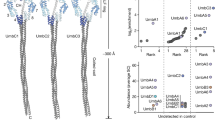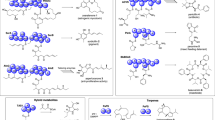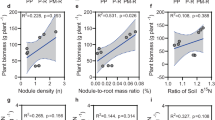Abstract
THE germ tubes of obligate parasites such as the rust fungi and powdery mildews fail to grow in the absence of host plants. This may be caused by metabolic blocks, the general location of which should be revealed by studies on the distribution of radioactive tracer among the various broad classes of metabolites. To determine if this would be a feasible approach to the problem of obligate parasitism, the assimilation of radiocarbon by uredospores of a rust fungus (Uromyces phaseoli (Pers.) Wint.) and conidia of a saprophyte (Aspergillus niger van Tiegh) was studied to see if any important differences in metabolism occurred between them. The preliminary experiments reported here were made with non-germinated spores, so the metabolism studied was essentially catabolic in character.
This is a preview of subscription content, access via your institution
Access options
Subscribe to this journal
Receive 51 print issues and online access
$199.00 per year
only $3.90 per issue
Buy this article
- Purchase on Springer Link
- Instant access to full article PDF
Prices may be subject to local taxes which are calculated during checkout
Similar content being viewed by others
References
Staples, R. C., and Weinstein, L. H., Contrib. Boyce Thompson Inst., 20, 71 (1959).
Author information
Authors and Affiliations
Rights and permissions
About this article
Cite this article
STAPLES, R., BURCHFIELD, H. Incorporation of Acetate into Protein by Obligately Parasitic and Saprophytic Fungi. Nature 187, 1040–1041 (1960). https://doi.org/10.1038/1871040b0
Issue Date:
DOI: https://doi.org/10.1038/1871040b0
This article is cited by
Comments
By submitting a comment you agree to abide by our Terms and Community Guidelines. If you find something abusive or that does not comply with our terms or guidelines please flag it as inappropriate.



